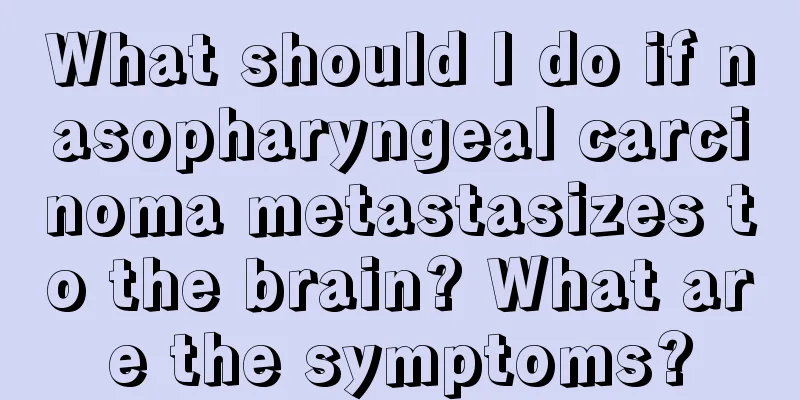My cheeks and ears hurt when I bite something

|
When talking about mumps, everyone must feel that it is still fresh in their memory. When we were children, we basically suffered from mumps. After suffering from mumps, we will find that our cheeks are swollen, and when eating or talking, we will feel pain in our cheeks and ears. When suffering from mumps, we must seek treatment in time. After all, mumps will feel very painful. When I bite something, my cheeks and ears hurt 1. This situation does not rule out the possibility of lymph node inflammation. For now, do not always eat on one side and you need anti-inflammatory treatment. Eat light food, rest more, and ensure adequate sleep and observation. 2. Consider the possibility of mumps. You can check the parotid gland with B-ultrasound. It is recommended that patients do not take it lightly and go to a regular hospital as soon as possible for further examination, diagnosis of the cause, and targeted treatment. Do not take medication indiscriminately to avoid delaying the disease. Mumps symptoms Symptom 1: Fever, moderate increase in body temperature, chills, loss of appetite, general malaise, headache, myalgia, etc. Symptom 2: Parotid gland swelling and pain (bilateral parotid gland swelling accounts for about 75%). Parotid gland swelling is often the first sign of the disease, lasting for 7 to 10 days. Often one side swells first for 2 to 3 days, and then the opposite parotid gland also swells. Sometimes the swelling is only on one side, or the parotid gland is swollen at the same time as the submandibular gland, or even only the submandibular gland is swollen without the parotid gland. Symptom three: There is soreness or swelling behind the zygomatic arch (where the parotid gland is located). The swelling of the parotid gland is most obvious 1-3 days after onset, and the swelling and pain are more obvious when eating or eating acidic foods. The swelling will gradually subside in about 2 weeks. In the first 3-5 days of the disease, there may be systemic symptoms such as fever, fatigue, and unwillingness to eat. Symptom 4: Redness and swelling can be seen at the parotid duct opening, but there is no purulent secretion. Symptom 5: In addition to mumps, patients may also develop meningitis, orchitis, oophoritis, pancreatitis, mastitis, etc., which are caused by the mumps virus invading different organs. It may occur successively with mumps and is generally considered a complication. Symptom six: Fever, chills, headache, sore throat, poor appetite, nausea, vomiting, body pain, etc. Parotid gland swelling and pain occur gradually over several hours, and the body temperature may reach above 39°C. Adult patients are generally more serious. |
<<: Why are my cheeks getting bigger
>>: How to cook rice with a smart rice cooker
Recommend
The principle of white sugar softening fish bones
I wonder if you have ever heard that when a fish ...
What are the simplest fitness common sense?
In today's society, people are paying more an...
What is the reason why hens lay soft-shell eggs
As we all know, hens laying soft-shell eggs is a ...
What to do if there is too much scale in tap water
It is easy for scale to hide in water pipes, and ...
What medicine to take for bile duct stones
Liver and gallbladder diseases are very harmful t...
Traumatic stress disorder symptoms
People's lives are rich and colorful, but peo...
Haze skin inflammation
Environmental pollution has become a difficult pr...
What does high risk of bladder cancer mean?
What does it mean to be at high risk for bladder ...
What does aerobic exercise refer to
The term aerobic exercise is becoming more and mo...
Can high transaminase be cured?
Normally, people are afraid of damage to the live...
What are the early symptoms of bone cancer
In recent years, bone cancer has become one of th...
How much sleep is normal for a nine-month-old baby?
A nine-month-old baby sleeps for a long time ever...
What should a pregnant woman bring?
Mothers who have just given birth will be the foc...
Can staphylococcus aureus be used in advanced lung cancer?
Staphylococcus aureus has an auxiliary therapeuti...
What is good to eat to regulate qi and blood? Eat more of these foods to regulate qi and blood
Qi and blood are very important for the human bod...









